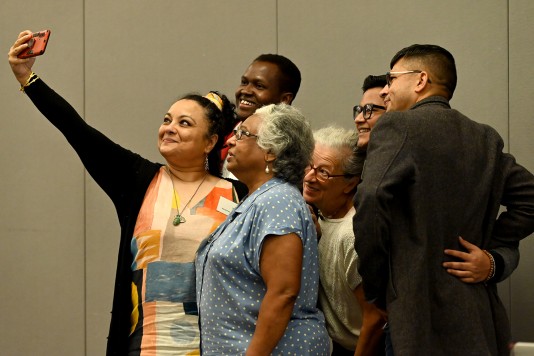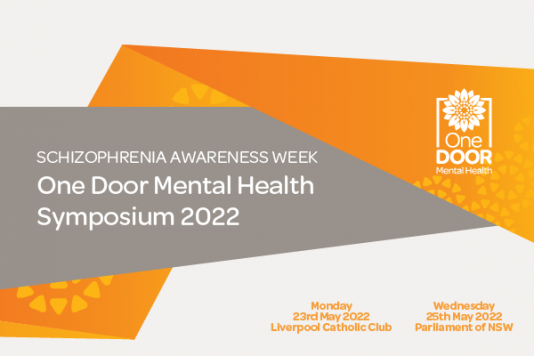This week I had the privilege of meeting with (many face to face and some online), and addressing the Annual Issues Workshop with those whom Mental Health Australia supports as leaders in the lived experience mental health community. This year we again welcomed members of the Embrace Lived Experience Group, and look forward to their valuable contribution. In light of this year’s theme, ‘Building courage, strength and resilience to promote change,’ it was pertinent to reflect on the past year, and how things have changed since our last meeting. The COVID pandemic offered us a new appreciation of our home and work spaces, as many of us transitioned to new and more flexible ways of living and working. We became accustomed to seeing one another on screens, and the lines between home life and work became increasingly blurred for many. We know with greater certainty that inter-personal connection is paramount to protecting our mental health – we need to stay emotionally, physically and socially connected to support our mental health and wellbeing. Connecting with people outside of your family and friends is important for tackling Australia’s loneliness crisis. This means that neighbourhoods and informal supports matter. Research tells us that communities where people know each other have better mental health, are safer, and are more resilient. The past few years have also driven home how critical the health, aged care and disability workforces are in supporting and caring for us, and for those we love. Australia’s healthcare workers still face extreme pressure from the demands on the health system, which leads to unsustainable stress and burnout. Frontline workers, and that includes peer workers, have been working tirelessly to keep us all safe – adapting to riskier workplaces, quickly learning new skills, and facing overwhelming situations with resourcefulness and compassion. This is life-saving, complex work that has allowed us to move through what has been a once in a generation collective experience. At the time of the last (2019) Workshop, the Productivity Commission’s Inquiry into Mental Health was underway. Handing down its report in November 2020, the Productivity Commission paid particular attention to people with lived experience in the development of this report, but the breadth and level of consultation, deep thinking, and planning with the sector at large was unprecedented. Unfortunately, we are yet to see the recommendations adopted let alone implemented and hopes weighed heavily on the Federal Government’s National Mental Health and Suicide Prevention Agreement. In 2021, Mental Health Australia working with its members and the NMHCCF and provided a comprehensive document “Advice to Government” in the absence of consultation with the mental health sector. Disappointingly, the National Agreement fundamentally fails to address almost all of the advice we provided. As we head into the 2022 Federal Election, it’s important to highlight just how much your vote and more importantly your contributions matter. The voice of lived experience votes too. Mental Health Australia has developed a suite of resources, available at mhaustralia.org, including a four-step process to help those with lived experience write to your local member, Senator or candidate. Your letter can outline what it is you personally are looking for when it comes to mental health reform and access to services in your local area, and if shared with Mental Health Australia can add to the collective lived experience voice highlighting many pressing issues at a community level. Federal Elections are about local issues, for local candidates in local communities. Your lived experience voice can help highlight those local issues and needs for mental health services in your area and turn help the nation design a more inclusive and structured mental health system. While we are currently not seeing the reform needed, we must draw on our strength and resilience to persevere. I’m looking forward to us seizing the opportunities we have ahead, and working together to lead change. On behalf of Mental Health Australia I sincerely thank you for your commitment and courage to driving change for yourselves and others with lived experience of mental ill health. I would like to acknowledge the members of the National Mental Health Consumer and Carer Forum (NMHCCF), the Embrace Lived Experience Group and the National Register whose continued advocacy has elevated the voices of consumers and carers throughout Australia. Have a great weekend. 
Dr Leanne Beagley CEO, Mental Health Australia |









